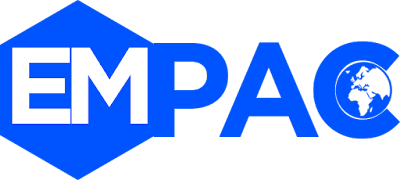Introduction
Ecommerce, with its rapid expansion,
is a critical component in transforming Ghana's economy. It revolutionizes
business operations and opens vast employment opportunities, heralding a new
phase in Ghana's economic journey. Empac - Emperors Academy, through its
courses such as Ecommerce and Digital Marketing, is strategically positioned to
contribute to this transformation, equipping individuals with the skills needed
to excel in the burgeoning ecommerce sector.
Growth of E-commerce in Ghana
E-commerce in Ghana is burgeoning,
driven by:
- Rising Internet Penetration: Over 80% of the population now accesses the
internet via mobile, broadening the potential consumer base for online
businesses.
- Emerging E-commerce Platforms: With platforms like Jumia and Tonaton, and
global entities like Amazon, the market is diversifying.
- Enhanced Delivery and Logistics: Better delivery services bolster consumer
confidence in online shopping.
Empac's Ecommerce course aims to
capitalize on these trends, preparing students for emerging opportunities in
this dynamic sector.
Direct and Indirect Job Creation
E-commerce in Ghana leads to job
opportunities in diverse areas:
- Direct Employment: IT, software development, digital marketing,
customer service, and logistics.
- Indirect Employment: Packaging, warehousing, and supply chain
management.
Empac's courses like Web Design and
Digital Product Creation directly support these employment sectors, enhancing
job prospects for its graduates.
Entrepreneurship and
Business Development
E-commerce lowers barriers for
starting businesses, fostering entrepreneurship. This digital transition
enables a diverse marketplace, where small-scale entrepreneurs can reach wider
audiences. Empac's training in E-Business and Content Marketing equips aspiring
entrepreneurs with the skills to capitalize on these opportunities, helping
them to establish and grow their online ventures.
Skill Development and
Training
The digital nature of e-commerce
necessitates specialized skills, leading to the growth of training programs.
Empac's courses in areas like Graphic Design and Freelancing cater to this
need, contributing to skill development essential for the e-commerce sector.
These programs are pivotal in preparing a skilled workforce, aligning with
Ghana's digital aspirations.
Challenges and
Potential Solutions
E-commerce in Ghana faces
challenges such as limited technology access and logistical issues. Potential
solutions include:
- Infrastructure Development: Enhancing internet connectivity and logistics
networks.
- Regulatory Support: Implementing policies to facilitate e-commerce
growth.
- Investment in Technology: Promoting investments in digital
infrastructure.
Empac addresses these by providing
practical, tech-focused education, preparing students to navigate and
contribute to the evolving digital landscape.
Conclusion
E-commerce is a key driver for job
creation in Ghana, offering numerous opportunities for economic empowerment.
Empac's role in educating and preparing individuals for this digital revolution
is vital, emphasizing the need for strategic investments in skills and
technology to realize the full potential of e-commerce.





0 Comments